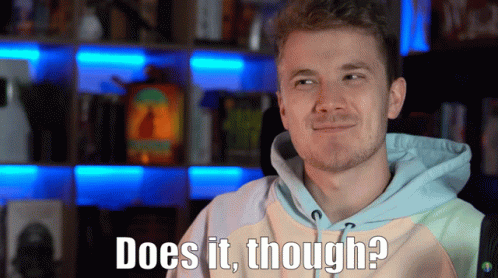Do remember that DLC is not a thing from the start. Characters are going to be already prepared for base. One isn't going to already be planned for DLC. The only way one will make it as DLC is if the negotiations take so long while trying to come up with base that it doesn't finish until DLC is already greenlit. And the sole example of that actually is Steve/Alex. It's not common.
They're effectively two different things. This isn't like other games. Any characters they want for DLC will start negotiations later once it's greenlit. Anyone they want for base is going to already be base by default. And we're not going to get a massive amount of 3rd parties for base just like that. Realistically, many will be negotiated for DLC(once it's greenlit, anyway).
---------
To go back to the Proximity Mine thing, it really only worked out because it was a first party original item that wasn't 100% game-related by design(R.O.B. is another case). Once it became third party, it was killed on the spot. So yes, licensing is the core reason, and it's a pure outlier for any content related to a non-gaming 3rd party. But you also have to remember that it was a R.O.B. situation, who as a character, isn't strictly from gaming, but also doubles as a Toy directly. It's both been sold as one and it's an important part of its history.
Nintendo had ownership in Rareware at the time. If they didn't, that would be a third party item, and it only borders as one in the same way Pokemon would. That is, not fully owned by Nintendo so they're negotiations/specific nuances to always work with. Not unlike any other regular third party. Key difference is that said Proximity Mine also appeared in Perfect Dark, so it was also tied to a game-original IP enough that it was even less of an issue that it could've been. If it wasn't, honestly? It probably would not have shown up since at no point was Sakurai actually okay with non-gaming 3rd party(as in the core origin of the franchise itself) hard content(Brawl Chronicle doesn't legitimately count as this either. It's just information. A Spirit is hard content. An item is too. Or a song, etc.) The key term is also 3rd party. That's actually where it came too much with James Bond as a concept, which he didn't consider even as playable so much as noted outright why he's not a reasonable option. When it comes to stuff not fully being from a video game franchise, it's only because Nintendo owned it did it ever actually show up. This was the actual exception to it. So no, we aren't getting someone like Geralt. He's still the same character, just re-adapted a bit overall for the games to make them more fun(him being stronger makes sense. He's the protagonist for cripes' sake).
Geralt is entirely an Android 21 situation. It's a non-game IP first and foremost.
-----------
As for Shin Megami Tensei, I actually misread it earlier. It's a spin-off of Megami Tensei itself(the specific games, not the overlying franchise term of MegaTen), and that's directly sequeled from the novels of Digital Devil Saga. Those games are 3rd party non-game series. SMT is a very direct spin-off and borderline. It's unclear if this is why it has no content, since it does still reasonably stay with the universe. Persona completely is unrelated to the Novels in every way, though. Hence, it's 100% a gaming IP. SMT is borderline. Megami Tensei really is not a borderline case. Also, the fact that Persona is its own thing even moreso in Japan may just be they didn't want to license another franchise for content and that's it. SMT being borderline may have zero relevance at the time. Or at any time, really.

